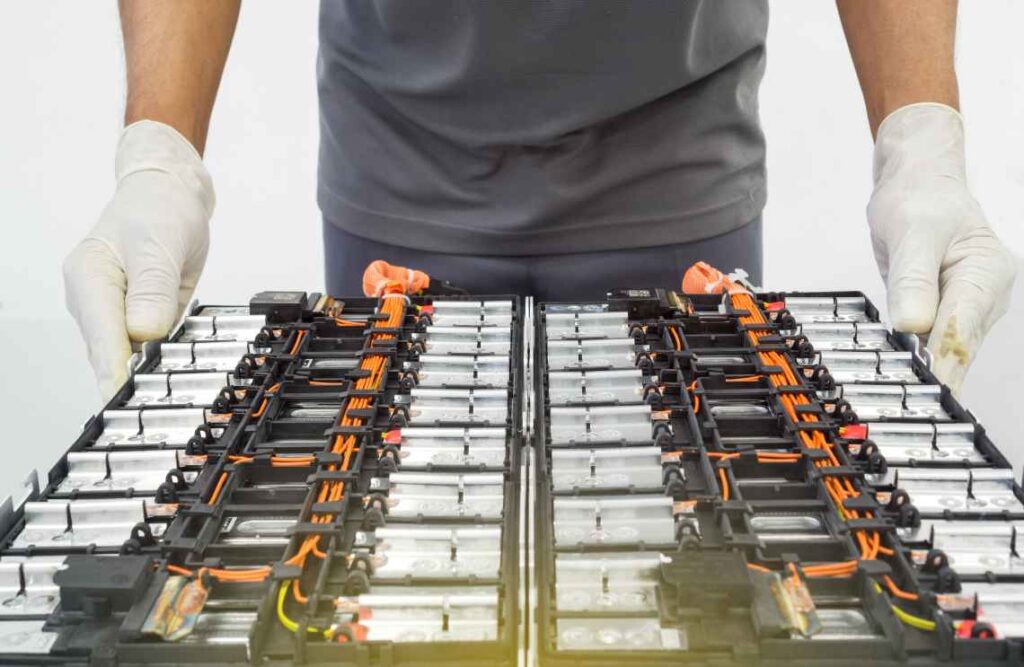As more people buy electric vehicles (EVs), the more batteries will need to be replaced since they have a limited life cycle. This has been on the mind of companies in recent years, but now there are an increasing number of players looking at ways to either recycle or reuse the batteries and their components.
According to the Battery Recyclers of America, the average lifespan of an EV battery is 10 years. Then the rechargeable electric batteries used in cars tend to have problems keeping their charge and need to be replaced. With the increasing shift away from gas-powered vehicles, there will be a lot of need in the coming years for a way to deal with the spent batteries from EVs.

What is happening now?
California is leading the way in both recycling EV batteries as well as phasing out the sale of gas-powered vehicles. The state’s government announced in August 2022 that as of 2035 sales of new gas-powered vehicles would not be allowed, making them a leader in a zero emissions policy. The US government also announced a goal of 50% of car sales to be EVs by 2030.
There are different laws for battery recycling, depending on the state you live in. Be sure to check out your state’s laws before going forward with recycling your EV’s battery. Some states like California have launched more robust recycling programs recently. Early in 2022, automakers like Ford and Volvo announced they are partnering with Redwood Materials Inc. They will recycle lithium-ion and nickel metal hybride batteries from hybrid and electric cars in California. This is an effort to create a closed loop supply chain for the EV auto (and mobility) industry.
What is a closed loop supply chain? Components from used EV batteries are used to make new EV batteries. So when automakers partner with a recycling company like Ford, they could reuse parts of old EV batteries to make new ones and have it as part of the production process.

What’s next?
Big changes have already started, with the announcement from California making headlines. Because the state is often at the forefront of such policies, it’s expected that other progressive states will follow suit. Outside of the US, the European Union announced something similar this year, with a mandate that member countries reduce CO2 emissions from cars and other vehicles by 100% by 2035. That would effectively ban the sale of new gas-powered vehicles, like in California.
Back in the US, there is a summit called “EV Battery Recycling & Reuse USA: Achieving a Circular Economy” planned for March 2023 in Detroit. There attendees will learn about advancements in EV battery recycling, discuss plans for dealing with the tens of thousands of “end-of-service” EV batteries expected to hit the market by 2025, and new recycling and reuse initiatives.
With more states and countries focusing on phasing out gas-guzzling vehicles in favor of EVs, there will be an increase in innovative solutions for handling the batteries and e-waste produced when they reach the end of their lives.